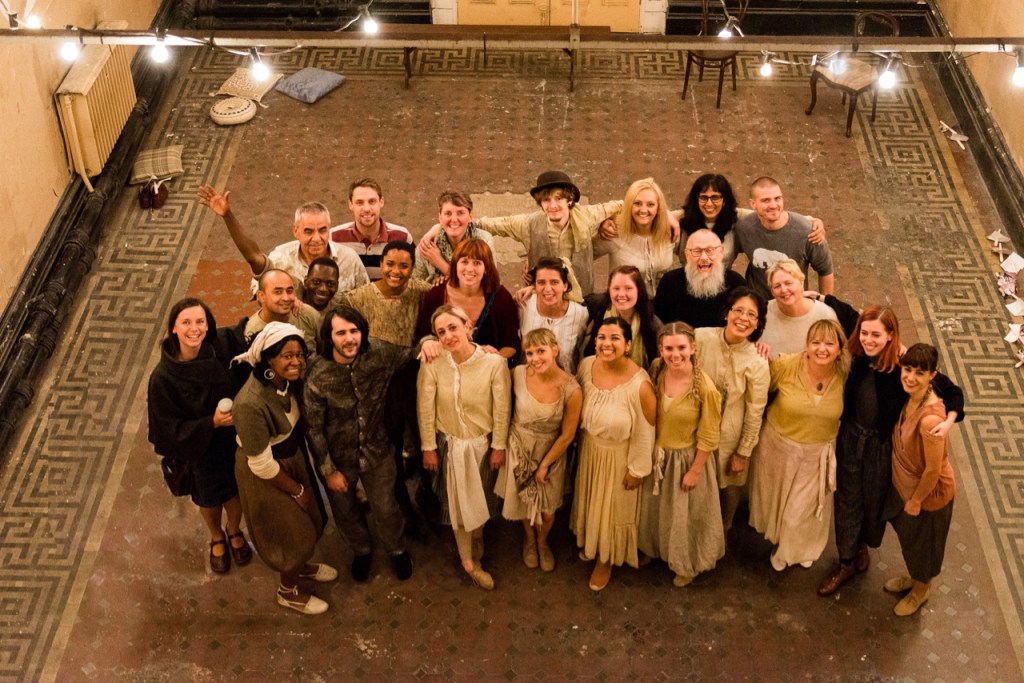Making a book is enjoyable but demanding too, especially as the deadline for sending digital files to the printer approaches. Proofreading is my current priority, so lacking time to write something new, I’ll share some extracts from the book in advance of publication. This is from a discussion of the intentions people bring to making participatory art. It’s enlivened by a beautiful photograph of the professional and non-professional artists who created Restoke’s 2016 project, ‘You Are Here’, with thanks to the company for the loan.
People get involved in a participatory art project for much the same reasons that any of us decide what to do with our free time. They might be motivated, more or less consciously, by curiosity, friendship, boredom, hope, frustration, enthusiasm or many other feelings. They might want to have fun, feel part of a community, learn something, protest, get a sense of achievement, have a new experience, face a challenge, make a change, get fit, meet people or do something that seems worthwhile. There is nothing particularly special about the decision to participate in art– it’s the decision to participate at all that matters.
Nor is there anything special about refusing participation. Sometimes, for example in a prison project, that may be the limit of a person’s choice: take part in this theatre project or stay in your cell. Children often lack even that much choice. Theatre is just what their teacher or carer has decided they will do today. But even in such highly constrained situations, non-participation remains an option, as anyone who has tried to involve an unwilling person in workshop activity will know. They might have to be physically present, but they are still able to remove themselves in other ways. Withdrawal can be a powerful act. It can affect everyone else in the room and change what happens, or even whether anything can happen at all.
Conditional consent is another possibility, though it’s rarely expressed so clearly. For some people it means standing on the edge, present and observing, but undecided about whether to join in. Or perhaps being happy to do some things, but not others: making tea but not costumes, acting but not singing, speaking up in rehearsals but not in meetings. Such half-commitment can be disruptive, because the person is claiming different terms of engagement for themselves, but it need not be. It is a strength of participatory art to offer many different roles and kinds of involvement, so that people choose for themselves if, when and how they want to take part. People often prefer such self-directed paths to the managed progression of more formal education programmes.
Whether people leap in with both feet, test the water first or stay resolutely on dry land, some artists find it hard to accept that refusing their offer is a conscious and legitimate choice, especially if they feel it’s based on false ideas. But a community artist must respect other people’s decisions, and the values and judgements on which they are based, even when they do not share them. If, when and how people choose to participate in an arts activity is a personal response. It is comparable to any other choice people make about the opportunities they have.
But for the professional artist, choosing whether or not to make an offer to potential participants is something else. It is a matter of intention and understanding that intention is key to understanding the practice of participatory art.
Adapted from A Restless Art, Chapter 4, ‘The intentions of participatory art’
(Available from 24 January 2019)
